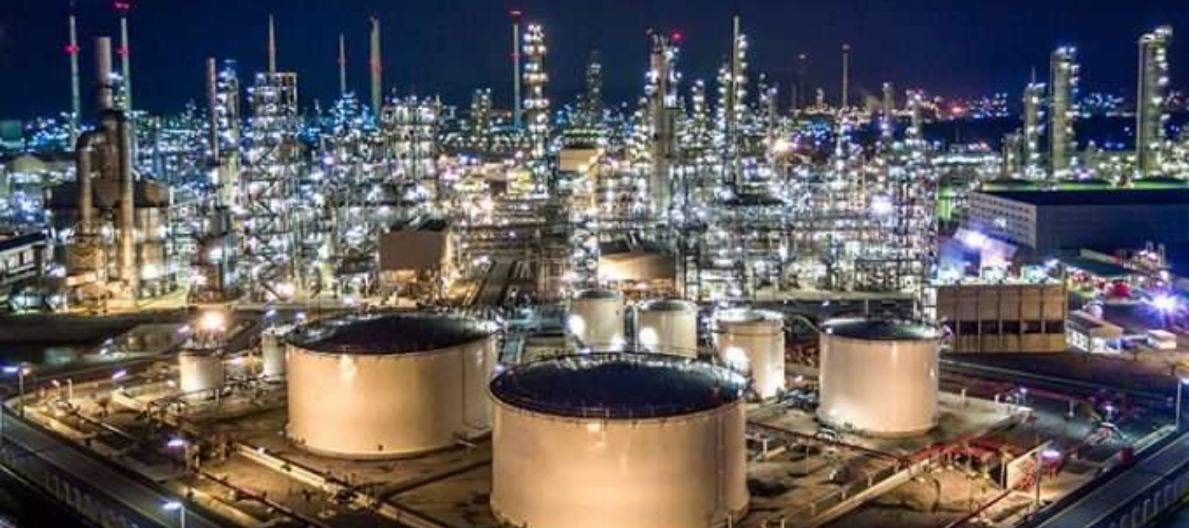MEW Switches To Natural Gas, Global Advisor Predicts Zour Products For The Next 35 Years
Kuwait Petroleum Corporation has asked Kuwait Integrated Petroleum Industries Company (KIPEC) to undertake prospective research on marketing Al-Zour refinery products domestically and internationally in the next 25 to 35 years.
According to a local Arabic daily citing oil sources, the KIPIC is expected to present the practice in the coming months to a number of consulting firms specializing in studying local market conditions in order to market refinery products during which huge quantities of the fuel oil product for which the refinery was originally built were dispensed with in favour of expanding the use of natural gas to power and water plants to operate turbines.
In terms of the refinery's financial and economic returns, sources claim that the Al-Zour project was designed on a non-profit basis because it is a strategic project aimed at meeting the Ministry of Electricity and Water's needs for fuel oil with low sulfur content in the first place, and thus the refinery's internal rate of return is not measured as another profitable project.
However, in light of recent developments in the global natural gas markets and the opening of the Al-Zour liquefied gas import port, the Kuwait Integrated Petroleum Industries Company, in collaboration with the Kuwait Petroleum Corporation, has been monitoring plans to increase the refinery's transformative capacity in the medium and long term with the goal of maximizing the added value of its products and, as a result, converting the refinery to profitability through the Al-Zour liquefied gas import port.
The contractors implementing the Al-Zour refinery faced many challenges, according to sources, and KIPIC made unremitting efforts to follow up on the works and develop appropriate solutions and plans to raise completion rates, as well as make maximum efforts to coordinate with the contractors to find solutions to all obstacles and difficulties accompanying the implementation of a project of this magnitude.
She went on to say that effective follow-up is being worked on by having periodic meetings with contractors' divisions at the highest levels, in addition to daily meetings with the project consultant to examine all contractor work linked to the project.
Regarding the losses incurred by Kuwait as a result of the delay in commercially operating the refinery, sources said that it is not necessary that the delay in commercially operating the Al-Zour refinery will result in losses, as oil refineries have incurred global losses in previous periods, particularly during the Corona pandemic period (the period that coincides with the date of the refinery's contractual operation), due to a decrease in the price margin between crude oil and petrified petroleum.
"Assuming that the Al-Zour refinery was operational in previous years, it is impossible to be certain that losses will be achieved," the sources added. "This depends primarily on the price margin between crude oil and petroleum products and their competition in global markets, the refinery's operational efficiency, as well as supply and demand for petroleum products, and to confirm these assumptions, operating the project is required."
According to the sources, the Kuwait Petroleum Corporation sells the amounts of crude oil scheduled for processing at the Al-Zour Refinery on international markets until the refinery is operational, allowing the state to obtain the desired and planned profits.
It's worth emphasizing that the Al-Zour Refinery project will supply fuel with low sulfur content to Kuwait's electricity and water producing stations, saving the environment by eliminating harmful emissions from power and water generating stations and recycling industrial water 100%.
The following are some of the causes behind the Al-Zour refinery's development delay, according to the sources:
1 – Insufficient labour throughout the project's first stages.
2 - Delays in design, detailed engineering, and key material and equipment delivery.
3 - Delays in acquiring required permissions from various government entities.
4 — unexpectedly severe weather conditions on the industrial island, hampered building efforts.
5 – The global spread of the Corona pandemic and its influence on the project, as well as the impact of the (total/partial) ban period and the entire closure of specific labour regions, made it impossible to remain at the job site and resulted in the project being closed.
To view the source of this news, please click (here)
Article or Post details
2022-04-23


